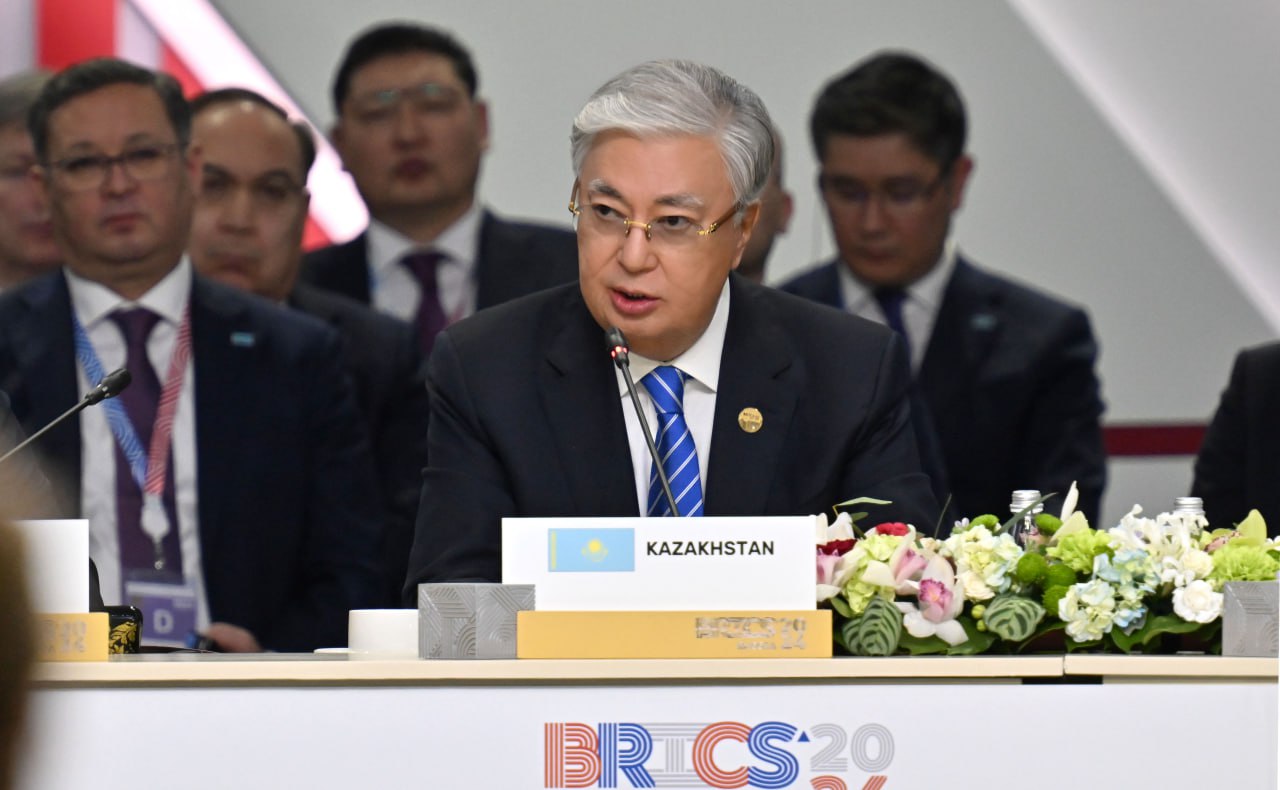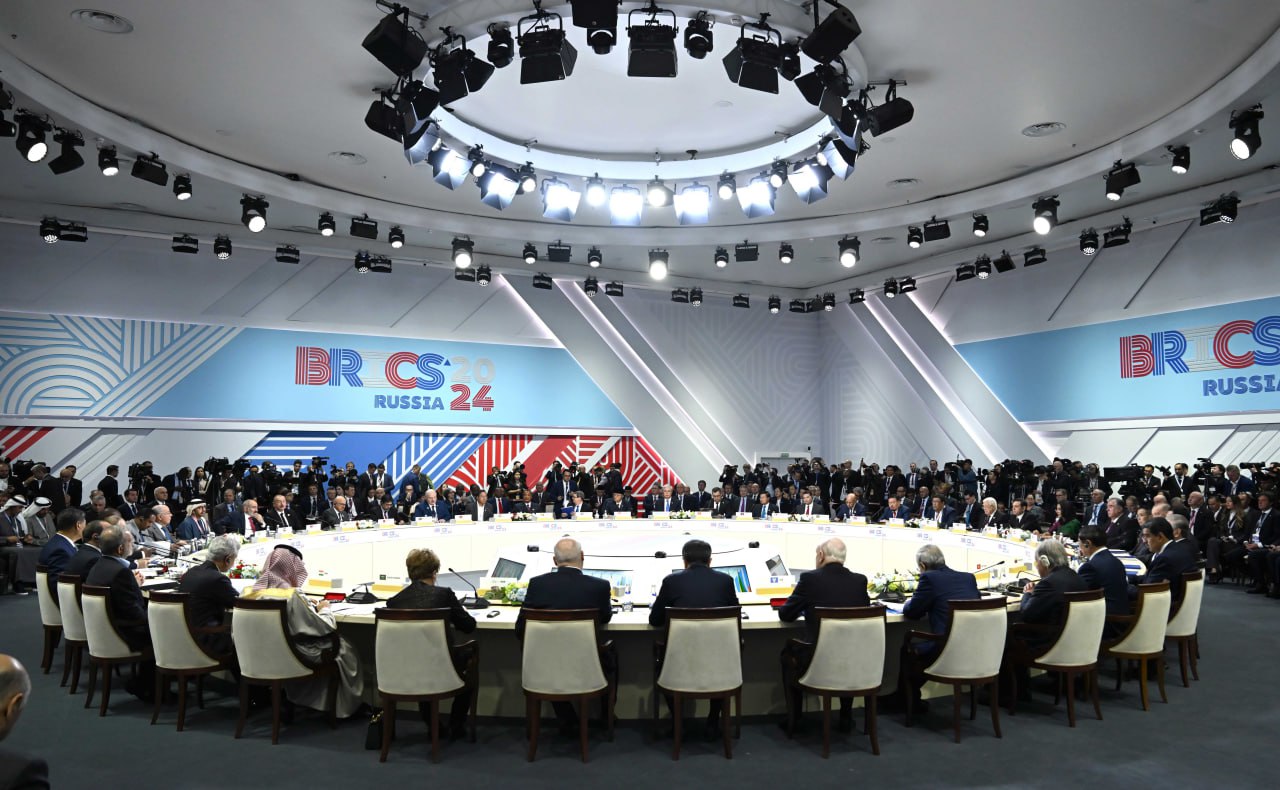ASTANA – BRICS is becoming a global center of international attraction, generating practical interest from many countries, said President Kassym-Jomart Tokayev during the BRICS plenary session in an outreach/BRICS Plus format in Kazan on Oct. 24, according to Akorda.

Kassym-Jomart Tokayev speaks at BRICS plenary session. Photo credit: Akorda
BRICS, originally an acronym for Brazil, Russia, India, China and South Africa, was established as an economic alliance of emerging market economies. It has since expanded to include Iran, Egypt, Ethiopia, Saudi Arabia and the United Arab Emirates.
According to Tokayev, BRICS unites countries from different continents, strengthening solidarity and effectively leveraging joint opportunities for the benefit of all participants.
“BRICS has both the resources and experience to build a future based on the principles of shared prosperity, mutual respect and partnership,” he said.
Tokayev highlighted that BRICS’ multilateral efforts harmoniously complement the activities of the UN, which remains an indispensable and universal structure. He added that the principles of diplomacy and dialogue outlined in the UN Charter form the foundation of the BRICS agenda, promoting peaceful resolution of conflicts and strengthening strategic stability.

The 16th BRICS Plus Summit in Kazan. Photo credit: Akorda
“We highly appreciate Russia’s concept of creating equal and indivisible security in Eurasia to reduce geopolitical tensions through strengthening mutual trust and cooperation. Kazakhstan supports China’s initiative on global security, protecting sovereignty, adopting multilateral approaches and peacefully resolving conflicts. Kazakhstan supports China and Brazil’s peace plan for Ukraine,” he noted.
Tokayev expressed concern over escalating tensions in the Middle East, stressing the need to jointly address the root causes of conflicts, such as poverty, inequality and lack of education. He advocated for reforms to the UN Security Council, including its expansion to include new members from Africa, Latin America and Asia.
He emphasized that the voices of the Global South should be heard in resolving peace and security issues, and BRICS can play a key role in this process, strengthening the representation of middle powers and developing economies within the global governance structure.
Tokayev highlighted Kazakhstan’s growing trade with BRICS countries, which now accounts for half of the country’s foreign trade, and outlined promising areas for cooperation in sectors such as trade and investment, IT, critical minerals, food security, education and tourism.
He emphasized strengthening partnerships in the transit and transport sector, primarily within the Belt and Road Initiative, the North-South International Transport Corridor, and the Trans-Caspian International Transport Route.
Tokayev called for partnerships within the BRICS Plus to strengthen energy security and address the impacts of climate change, including water shortages, rising temperatures and desertification.
In conclusion, Tokayev underscored that the BRICS Plus format will significantly enhance North-South connectivity, reduce global imbalances, strengthen international security and ensure global progress. The summit gathered representatives from 36 countries and leaders of six international organizations, along with approximately 20 delegations.
On the sidelines of the plenary session, Tokayev held brief conversations with the President of Türkiye Recep Tayyip Erdoğan, President of Belarus Alexander Lukashenko, Secretary General of the Shanghai Cooperation Organization Zhang Ming, and Gombojavyn Zandanshatar, Chief of Staff to the Mongolian President.
On the first day of the summit, he also held brief discussions with Chinese President Xi Jinping, Azerbaijani President Ilham Aliyev, Egyptian President Abdel Fattah el-Sisi, Laotian President Thongloun Sisoulith, Congolese President Denis Sassou Nguesso, and Vietnamese Prime Minister Phạm Minh Chính.
